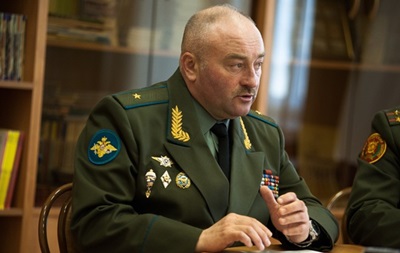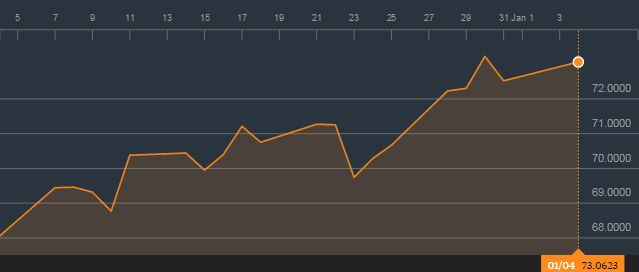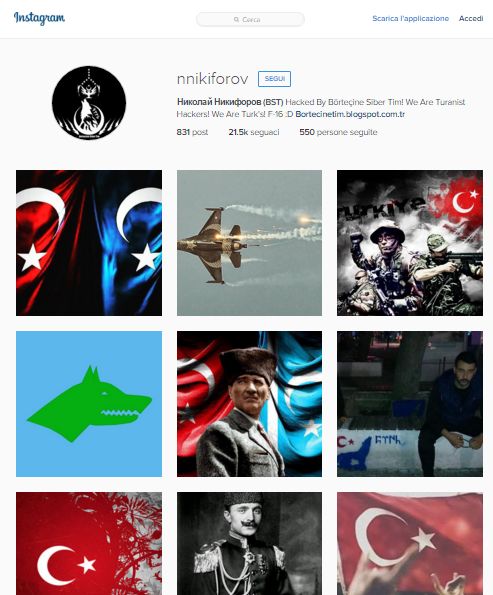Evidently following the lessons learned from opposition leader Alexey Navalny’s expose of Prosecutor General Yury Chaika and his sons, the Communist faction of the Russian parliament want to ban relatives of officials from running businesses.
Welcome to our column, Russia Update, where we will be closely following day-to-day developments in Russia, including the Russian government’s foreign and domestic policies.
The previous issue is here.
Recent Translations:
–The Non-Hybrid War
–Kashin Explains His ‘Letter to Leaders’ on ‘Fontanka Office’
–TV Rain Interviews Volunteer Fighter Back from Donbass
–‘I Was on Active Duty’: Interview with Captured GRU Officer Aleksandrov
UPDATES BELOW
The deaths of two senior Russian military officials within the space of a week has touched off speculation in Russian social media about the toll Russia’s foreign wars are taking on the armed forces — with darker hints of a conspiracy to cover up the undeclared war on Ukraine.
As we reported, Lt. Gen. Igor Sergun, head of the GRU (military intelligence), reportedly died an “untimely” death at the age of 58 from unknown causes. Sergun, appointed by President Vladimir Putin, would have been central to the “hybrid war” against Ukraine that first involved the occupation and annexation of Crimea, then the invasion of the Donbass by Russian tanks and troops. Indeed, the accounts of GRU officers captured or killed on Ukrainian territory testify to the GRU’s involvement.

The claim of Shushukin’s role in the Crimea were covered mainly by the Ukrainian and alternative Russian-language media.
This blogger, as others, also wondered if the recent resignation of Aleksei Chaly, head of the occupation parliament in Crimea, was a coincidence. Sergei Menyailo, governor of Sevastopol, also resigned last month.
Stanislav Rechinsky, a journalist for Ukrainska Pravda and advisor to the Ukrainian Interior Ministry wrote on his Facebook page:
“Look at this. The second leader of the Russian invasion of the Donbass to kick the bucket within two weeks. Speedy karma, however. Awaiting Girkin and Bezler. With Putin.”
Later he commented to Ukrainian media:
“Shushukin headed the paratroopers’ contingent from the Russian Federation in the Crimean operation. Before that, the operation in [Southern] Ossetia. This is the ‘irony of fate.'”
Russian opposition member Vladimir Milov wrote on his Facebook page today (translation by The Interpreter):
“For some reason military leaders who organized the military invasion of Ukraine have gone dying. Young. The second in a row.”
If Shushukin had in fact led the occupation of Crimea — and his job position suggests that he would well have been involved — it is odd that that no medal for this “achievement” or mention in his obituary was made, given that President Vladimir Putin acknowledges the role of the Russian military in the anschluss.
But the problem with this theory is that most of the key commanders of the invasion of the Donbass — such as Col. Igor Strelkov and Col. Igor Bezler, as well as former “Donetsk People’s Republic” prime minister Aleksandr Boroday and deputy prime minister Vladimir Antyufeyev, a former Russian Interior Ministry OMON riot police officer — were all safely extracted to Russia. Most of them have performed multiple missions in various theaters of war, and it doesn’t make sense for the Kremlin to kill off needed, experienced people. Those commanders who have been assassinated, such as the Cossack leader Pavel Dremov and separatist commander Aleksandr “Batman” Bednov, seem to be mainly from the “Lugansk People’s Republic” and killed by their own people.
“According to preliminary information, on January 1, at about 10:15 local time (12:15 Moscow time), police demanded that the crew of the Ivan Bobrov put down their anchor at the port of Helsingor. At the present time, the ship is in port.”
The Ivan Bobrov is registered at the port of Arkhangelsk and was headed from the British port of Ipswich to Riga.
— Catherine A. Fitzpatrick
The Russian ruble hit all time lows in the final days of 2015 as oil tumbled, and as Russia’s trade war with two major trading partners — Ukraine and Turkey — continued to heat up.
Throughout 2015, Russia also tried to reassure its investors that they were building ties with emerging markets like the BRICS (Brazil, Russia, India, China, South Africa).
Today the world markets are in turmoil as tensions heat up between Iran and Saudi Arabia, certain economic indicators reveal underlying weakness in global economies, and China’s economy continues to implode.
Bloomberg reports:
China stopped trading in stocks, futures and options after a 7 percent slump in the CSI 300 Index caused the nation’s new circuit breakers to kick in. Equities in South Korea, India and South Africa slid at least 2.1 percent, while Saudi Arabian shares dropped 2.4 percent. The offshore yuan suffered its biggest retreat in almost five months. The kwanza slid 15 percent versus the dollar.
Following their worst year since 2011, emerging-market stocks are under pressure again on concern a slowdown in the world’s second-biggest economy will curb global growth. Data showed Chinese manufacturing shrank for a fifth month, the longest streak since 2009. Saudi Arabia and some of its Gulf allies severed or downgraded ties with Iran in the biggest meltdown in relations between the Middle Eastern powers in almost three decades, raising the specter of deepening conflicts across the volatile region.
“It’s a poor start to the year with a lot of bad news such as weak economic data from China and heightened tension in the Middle East,” Win Udomrachtavanich, Bangkok-based chief executive officer at One Asset Management Ltd., which oversees about $3.5 billion, said by phone. “A further economic slowdown in China will definitely hurt the developing countries’ growth.”
Russian stock index MICEX is off 1.5% today. Here are the latest graphs from Financial Times:
But Bloomberg is also cautiously optimistic, noting that the emerging markets — including Russia — still have large foreign reserves:
Foreign reserves in the 12 biggest emerging markets, excluding China and countries with pegged currencies, fell about 2 percent to $2.8 trillion in 2015, according to data compiled by Bloomberg. The actual decline may be smaller because the strengthening dollar reduced the value of other reserve currencies such as the euro.
While China burned through more than $400 billion in reserves to stabilize the yuan last year, most other developing countries such as Russia and Thailand are tolerating currency depreciation to shore up exports. With lower commodity prices and limited government dollar debt, weaker exchange rates haven’t stoked inflation or undermined public financing as they used to.
…
Russia didn’t dip into its $369 billion of reserves in 2015 even as the ruble tumbled 19 percent. South Korea and Thailand held theirs steady at $368 billion and $148 billion, respectively. India even took the advantage of the stability of the rupee to replenish its war chest, swelling the reserves 11 percent to $328 billion.
Developing nations are embracing the greater competitiveness that comes with the beating their currencies have taken, leaving their rainy day funds untouched. Foreign reserves in the 12 biggest emerging markets, excluding China and countries with pegged currencies, fell about 2 percent to $2.8 trillion in 2015, according to data compiled by Bloomberg.
Still, nobody is predicting good things for the Russian economy in 2016. Even the Russian state-operated propaganda outlet Sputnik is struggling to positively spin the current situation:
Russian oil industry will endure low commodity prices due to Russia’s weakened national currency, Moody’s Investors Service said in a press release on Monday.
“Russia’s weak ruble will help the country’s national oil companies withstand low oil prices, but economic sanctions limit access to long-term external financing from US and EU financial and capital markets for the Russian giant Rosneft (Ba1 stable),” the release stated.
Moody’s statement had even worse news for the outlook of global energy companies, many of which are already under intense pressure.
“As a result of deteriorating cash flows and credit investors increasingly avoiding the struggling energy sector, Latin American national oil companies will face high refinancing risk,” added Nymia Almeida, a Moody’s Vice President – Senior Credit Officer. “On top of significant maturities due in 2016-17 for Mexico’s PEMEX, Brazil’s Petrobras and Venezuela’s PDVSA, currency devaluations will raise import costs, capital spending and interest payments.”
Credit metrics will also continue deteriorating for China’s three national oil companies — China National Petroleum Corporation (Aa3 stable), China Petrochemical Corporation (Aa3 stable) and China National Offshore Oil Corporation (Aa3 stable) — through at least 2017. Furthermore, Russia’s weak rouble will help the country’s national oil companies withstand low oil prices, but economic sanctions limit access to long-term external financing from US and EU financial and capital markets for the Russian giant Rosneft (Ba1 stable).
The logic that the ruble will rally, as tensions between Saudi Arabia and Iran will drive the price of oil up, and that the ruble will benefit, may not be panning out. Here’s the 7-day record for Brent Crude via Nasdaq — as we see, it’s actually been tending down since it spiked on New Years Eve:
The notice said that Sergun, a graduate of the Suvorov Military Academy, was known as a “real fighting officer, an experienced and competence commander, and a man of great courage, a true patriot” (translation by The Interpreter).
The cause of death was not indicated.
The GRU (Main Intelligence Directorate) of the Defense Ministry is responsible for wars in Syria and Ukraine among other areas of Russian military presence.
Two Russian GRU officers were captured by Ukrainian forces in Schastye last year and await trial on charges of terrorism. Three other officers were killed in battle and Russian bloggers confirmed their graves.
Sergun was included in the EU’s list of sanctions in connection with Russia’s annexation of the Crimea.
According to an RBC.ru report, Nikolai Nikiforov, Russian minister of communications, restored his Instagram account to normal after hackers defaced it yesterday with images of a Turkish flag and Su-24 bomber, recalling the shooting down by Turkey of a Russian fighter plane in November.
The hackers also placed portraits of Mustafa Kemal Ataturk, the founder of the Turkish Republic.
“After today’s incident, personally I am left with many questions about the security of Instagram compared to other services and regarding the speed of reaction of its technical support.”
— Catherine A. Fitzpatrick
The second amendment says that if they [the officials] make fictitious divorces but continue to run common business, then there will be fines in the area of 1 million rubles as sanctions, and they will be relieved of their posts.
His reference was to the claim in Navalny’s report that Olga Lopatina, the wife of Deputy Prosecutor General Gennady Lopatina had registered a business after ostensibly feigning a divorce from her husband, supposedly enabling him to hide his assets from public disclosures required by officials.
“I am convinced that this initiative is a PR gambit, in order to attract attention to themselves. How can we ban relatives and family of state, munipal officials or of the parliament or any level to be involved in any type of activity?”
On December 1, opposition leader Alexey Navalany and his colleagues at the Anti-Corruption Foundation released a report and video in which they outlined the business deals of Chaika’s two sons, Artyom and Igor, and the organized crime connections they had made in registering companies along with the wives of underworld figures, including a convicted murderer of 12 people.
Chaika and former investigator Pavel Karpov denounced the report as a frame-up, and claimed that the report was supposedly commissioned by William Browder of Hermitage Capital “in collusion with the CIA.”
Browder has been a long-time critic of corruption in law-enforcement, ever since his colleague Sergei Magnitsky was arrested, tortured and left to die in prison after blowing the whistle on fraudsters in the Interior Ministry.
Novaya Gazeta followed up on Navalny’s reporting and confirmed that the business registration documents for Kuban Sugar showed the founders to be Olga Lopatina, wife of Deputy Prosecutor General Gennady Lopatina, from whom she ostensibly was divorced. Navalny’s reported showed the two continued to play Facebook games together. The other founders were the wives of organized crime figures. Novaya Gazeta also confirmed the hotel developed in Greece by Artyom Chaika (who uses the spelling “Chayka” in Switzerland), and that he had obtained Swiss residence permission.
— Catherine A. Fitzpatrick




